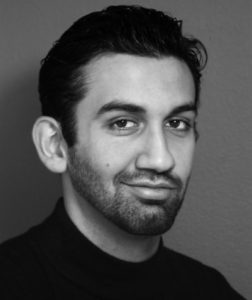Sony Tiwari enjoys a varied career in the arts as a composer, performer and assistant professor at Bergen Community College in Paramus, NJ. A specialist in accreditation and assessment, he leads courses in music theory, the humanities, and performance ensembles. Mr. Tiwari is a former MA graduate from New York University and current Ed.D. candidate in Music Education at Columbia University. Between teaching and research projects, he produces various music concerts across New York and New Jersey while continuing to serve as Chief of Production at Realativity Music Group, a company dedicated to independent artists and multimedia projects.
Abstract:
Confronting Hip Hop’s Absence in the College Curriculum
As hip hop grew out of block parties in the 1970s South Bronx to become a dominant global force, its values have been assimilated by various cultures and curried through contact with other ways of knowing. Amid newfound currency with a rising generation of teachers, opportunities to use its infectiousness are continually explored. Tupac lyrics provide English instructors with an accessible bridge to discuss metaphor and simile, while “rapping teachers” engage students in history, science and math. Textbook publishers have been quick to insert themselves into the movement, publishing workbooks and interactive software. While public school teachers and administrators begin to champion hip hop as an agent for learning and social justice, our understanding of how music educators actually use hip hop in the classroom is vague. As purveyors of pedagogical discourse, many college and university music programs approach hip hop with apathy and perplexity.
Instead being marginalized, what if our understanding of hip hop was further cultivated in these programs? Could students develop fluency in it alongside more conventional subjects such as Schenkerian analysis and Alexander Technique? The notion of fluency implicitly relies on discourse, whereas the language of hip hop quickly becomes engulfed by vague terms. Its elusive nature evokes Deleuze and Guatarri’s rhizome, an entity with “no beginning or end, always in the middle, between things, intermezzo.” This slipperiness confounds our ability to discuss it. Instead, language about hip hop evokes a mystic, intangible quality. It’s called “a force for creativity and love, affirmation and resistance” (Hill 2005) and “an alchemy of blues, jazz and rock and roll” (Weathersby, 2015). As a result, discourse and knowledge about hip hop is not music based. Discussions about good examples of rap rely on axioms such as “authentic” or “feel.”
A comparison between historical eras or geographic styles of hip hop rely on factors beyond the music itself: message, identity, social context, impact and a vague descriptor we term “realness.” Likewise, educational rationales for hip hop as a valid music practice have been usurped by its capacity as a social and political change agent. Its role in urban life and potential for social justice and human liberation remain critical to its validation as a subject of study. Have we put this burden on classical music? Or jazz? Or more recently, popular music?
It may be valid to espouse the potential of hip hop for change and its potency as a conduit for social awareness. Still, a discourse about hip hop confined to extra-musical superlatives implicitly marginalizes its legitimacy and leads to costly assumptions about its ubiquity. Educators that narrowly promote hip hop as a pedagogical “trick” mistake its accessibility for a lack of depth. At the same time, many of those making the case for hip hop in the classroom are not actual practitioners of the music. Respect for the culture may not suffice in place of the skills and insights that practitioners of hip hop are able to apply in a teaching context. This paucity of hip hop “musickers” in the conversation remains problematic in absence of discourse that is music-based.
Unfortunately, teachers are left to explore hip hop related pedagogies without a protracted examination of the music itself. As a preparer of future educators, colleges and universities have neglected to acknowledge and empower students who enter their programs with an inclination towards hip hop music, many of whom may apply those skills as teachers. Without a way of engaging these students, hip hop music will continue to remain outside the margins of artistic practice, stymieing its understanding among educators. Schools will remain perplexed by hip hop pedagogies until its unique literacy and ways of knowing can be recognized. This presentation will confront obstacles preventing knowledge-based discourse about hip hop music in colleges, comparing it to the ways practitioners traditionally become versed. Attendees will learn how a preference for Euro-centric epistemologies, creative disregard, and hegemonic concerns need to be addressed, concluding with a discussion of how educators can further explore hip hop music in their own classrooms. Practitioners native to hip hop culture and unfamiliar educators alike are encouraged to share their unique perspectives.

